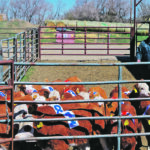The study characterizes cattle behaviour, such as aggressiveness, and its link to negative health and welfare outcomes
Measuring the temperament of beef cattle could help predict disease susceptibility and manage high-risk animals. Development of a chute-side test using feedlot cattle temperament as an indicator of disease resilience is the focus of a new five-year research study at the University of Saskatchewan’s Western College of Veterinary Medicine in Saskatoon. “The way I use […] Read moreLivestock Management — page 185
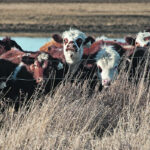
Negligible risk status will have big impact on beef sector
Congratulations are in order for the effort and dedication of the Canadian Food Inspection Agency and the Canadian Cattlemen’s Association in finally achieving negligible risk status for BSE. The international designation will allow Canadian beef exporters access to more foreign markets. Canadian beef access to many foreign markets has been restricted since 2003 when BSE […] Read more
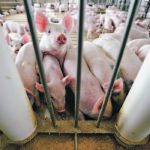
U.S. hog industry faces variety of challenges
A court ruling that could potentially reduce line speeds at processing plants is one dark cloud hanging over the sector
The U.S. pork industry is fighting attacks and challenges on all sides. It’s a familiar situation for the industry, but it makes predictions about producers’ futures difficult. Farmers are making money today, but they’re recovering from big losses and don’t know how badly some of today’s threats hit them. “Right now it’s profitable,” said National […] Read more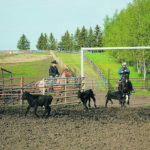
Program educates youth about beef
Canadian Cattlemen’s Foundation donates $150,000 to the University of Calgary to help launch a national youth program
Concern about a perceived lack of knowledge among young people about beef production has prompted the Canadian Cattlemen’s Foundation to donate $150,000 to the University of Calgary to help launch a national youth program. The average person in cities such as Calgary is likely several generations removed from the once common experience of growing up […] Read more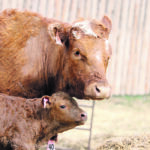
App uses new technology to manage herds
‘Smart-device application’ will make recommendations using data that beef producers collect daily on their operations
An expert who plans to use artificial intelligence to help create a mobile app for Alberta’s beef producers says being a successful farmer is like being a good doctor. “To be a good doctor, to be a good farmer, you have to be able to take in a whole bunch of information, use a lot […] Read more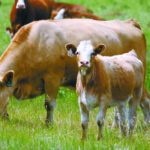
University of Alberta researcher will focus on beef costs
University’s first BCRC-Hays Chair in Beef Production Systems will find ways to cut costs while reducing carbon footprint
Although she laughs as she admits she has never driven a car on snow, scientist Gleise Medeiros Silva says she is more than ready to take on the challenge of helping Canadian beef producers. “I think I am a person who adapts well wherever they go, so I think Canada is an amazing country,” she […] Read more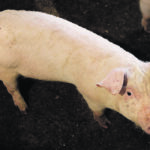
Precision feeding considered for livestock
Researchers say precision livestock nutrition could become part of commercial hog operations within a couple of years
Precision livestock nutrition can maximize nutrient use and profitability in hog operations. PLN, as it’s known, is part of the emerging concept of smart farming, or precision livestock farming, that uses information and technology to monitor and control farm processes. Nutrition is a key part of that, said Dr. Candido Pomar, research scientist from Agriculture […] Read more
Veterinary pathologist observes 50 years of changes
This June, animal health professionals gathered for the Canadian Animal Health Laboratorians Network meeting. Like many things in 2020, the in-person conference was cancelled due to the COVID-19 pandemic. Instead, the University of Calgary Faculty of Veterinary Medicine hosted the meeting in a virtual format. The organization includes people from a range of laboratory specialties […] Read more
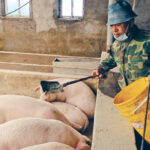
Don’t panic, Chinese govt tells pig farmers as prices slide further
BEIJING, June 21 (Reuters) – China’s government-backed livestock industry body urged pig farmers on Monday not to panic as hog prices fell further and investors continued to sell shares in major producers. Live hog prices in the world’s top pork consumer have plunged 65% since the start of the year as domestic production surged and […] Read more
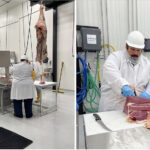
Stung by pandemic and JBS cyberattack, U.S. ranchers build new beef plants
CHICAGO, June 17 (Reuters) – U.S. cattle ranchers and investors are sinking hundreds of millions of dollars into new beef plants after temporary closures of massive slaughterhouses at the start of the COVID-19 pandemic left farmers with nowhere to send animals destined to be turned into meat. A cyberattack against the U.S. unit of Brazilian […] Read more

